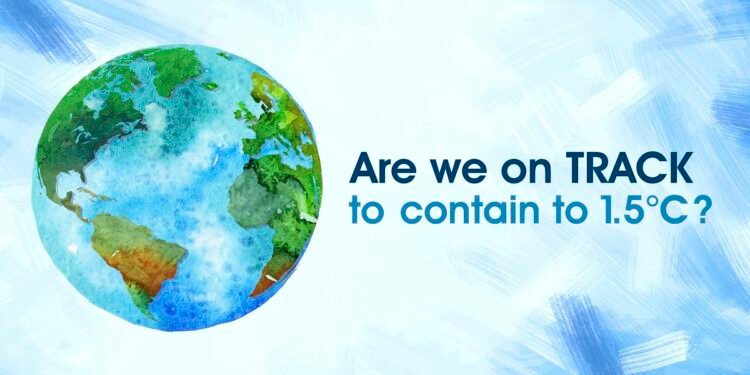To embark on a more sustainable future, nations have established their own Nationally Determined Contributions (NDCs) at the Paris Agreement to combat climate change.
By Rinika Grover
2020 will be remembered as the ‘Year of the Pandemic’ and looms upon us again with cases surging. Through innovative and collaborative research, we have responded in international solidarity with the sole purpose of fighting against COVID-19, notably richer nations funding vaccination program which is slowly but surely being ramped up across the globe. Yet a climate ‘pandemic’ has been unfolding that requires an even more gargantuan effort. A failure to respond effectively to this existential crisis threatens the lives of millions and the future existence of nations!
Devastating floods have washed away homes, coastal communities and essential national infrastructures. Freakishly high temperature records have threatened livelihoods, triggering wildfires and triggering immigration across the globe. We are at a tipping point and simply working to restrict future rate of growth in average temperatures is not enough. The recent Intergovernmental Panel on Climate Change (IPCC) report stating that global temperatures are likely to rise in the next two decades even if drastic measures by countries are undertaken identifies the crisis. COP26 (Conference Of Parties), focused on to discuss the IPCC Report and push four key goals; to secure global net zero by mid-century, to adapt to protect communities and natural habitats, to mobilise finance and to work together. Agreements arising from COP26 has seen a movement in the right direction but short of what still appears to be a momentous task to deliver on those goals!!
The critical question is how can we avert reaching the tipping point? To embark on a more sustainable future, nations have established their own Nationally Determined Contributions (NDCs) at the Paris Agreement to combat climate change. Prior to this, with business as usual, we were predicting an increase in global temperatures by 4-5°C. However, with the commitments of NDC’s, we were on track to reach an unacceptable 3°C, which triggered the need to update the NDCs by charting out a plan for the next decade during COP26 to limit rises to 1.5°C.
Also Read: Decoding Net Zero – Scope 3 emissions, a missing piece of the NetZero puzzle!
Current commitments by countries accounted for a total cut of 4 bn tonnes of emissions, as opposed to a requirement of total 28 bn tonnes. How do we bridge this gap? Even 1.5°C rise seems untenable. Countries such as the UK have shown their commitment by enshrining targets to slash emissions by 78% by 2035. Others such as Bhutan have submitted its aspirations to become carbon neutral and have carved out a plan to put mitigation measures. Is that enough? The approach to climate change requires the entire world to make stringent cooperative commitments, not silo plans, with richer nations supporting the challenges facing developing nations.
Big polluting nations have resisted making any immediate commitments given their ambitious development plans. They are dissatisfied with the developed world’s lack of actions to curb their emissions as the next round of commitments tabled highlights the gaps, which have amplified since 2020 and compounded by their insufficient financial support. A Council on Energy, Environment and Water (CEEW) report revealed developed countries together emitted 25 gigatons of CO2 equivalent (GtCO2eq) more than their estimated emission allowances during 2008-2020. The Paris Climate Agreement calls for rich nations to contribute $100 billion to poorer nations in order to meet the targets has yet to materialise.
The surge in fossil fuel prices adds to the challenges facing nations. At the onset of Pandemic, the beginning of the end of the Oil Industry was envisaged, yet as nations emerge out of ‘lockdowns’ the spike in demand for the dirtiest fuel, coal, is projected to increase by 5% in the coming years. This makes meeting decarbonisation planned targets more challenging. During the COP26 Summit more than 40 countries pledged to cease coal usage, whereas biggest emitters, who burn roughly two-thirds of the world’s coal, such as China, India or even Australia are looking to phase down not phase out usage. Post Pandemic, the economic recovery is a key priority for all nations, for some phasing out fossil fuels challenges those recovery plans.
Also Read: The ABCD of how Biodiversity makes good Business sense
What are plausible paths to move to an end of fossil-fuel age? How will countries adopt this and achieve it? Two key unanswered questions which still need to be addressed. Electrifying everything based on renewables is a great move, but one which is fraught with pitfalls because it is difficult to replicate the fossil fuels completely due to its inherent qualities such as energy density.
Limiting global warming is a formidable challenge, one that needs a collaborative approach and action! Nations have much to learn from the global response to the recent pandemic, the consequences of not doing enough to address climate change will make the COVID-19 pale into insignificance. This is one of the most pressing world problem and decisions made and undertaken today will impact all our lives.

About the Author
Rinika Grover is the Head Sustainability and CSR at Apollo Tyres Ltd.
Disclaimer: The opinions expressed within this article are the personal opinions of the author. The facts and opinions appearing in the article do not reflect the views of India CSR and India CSR does not assume any responsibility or liability for the same.
(India CSR)























